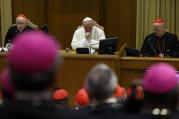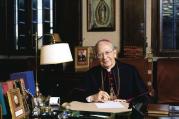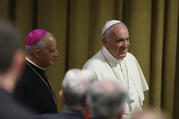Click here if you don’t see subscription options









Open to God
John A. Coleman, S.J., is rightly concerned by a theory of civil law that is excessively entangled with theological doctrine (Religious Liberty, 11/28). The official Catholic position on the numerous moral issues to which he refers certainly is theological doctrine. But it is also the objective teaching of human, moral reasoning. If not based on such reason, civil law runs the risk of a tyrannical positivism with no determining criterion other than the wish of the most powerful (which is not necessarily the majority).
Furthermore, if objective moral reasoning is not to be the content of civil law (in matters, of course, which evoke morality), then what else is to replace it? Legislating immorality or amorality seems to be, as experience proves, the only alternative. There is no moral neutrality. While that might save us from distasteful theories of too much God in civil law, it might well lead to irrational or nonrational law and to a society that follows suit. The fact that a society is open to God does not mean it is bereft of reason. Indeed, the opposite is more likely.
(Msgr.) Peter Magee

Cautionary Note
Thank you for publishing Thomas A. Shannon’s clear and concise article (2/18) about the complex moral and ethical issues surrounding attempts at human cloning to obtain stem cells for therapeutic use, and the related question of induced parthenogenic cell division of human eggs for the same purpose. This article documents the need for care and caution by the scientific community in continuing such research and, importantly, emphasizes the very preliminary stage of our knowledge in the use of stem cells. Implied also is a cautionary note for the magisterium in its authoritative pronouncements about the beginning of human life, when it fails to consider at all the advances in the science of embryology over the last several decades. I hope we can all benefit from the expertise of Professor Shannon and his colleagues.
Robert M. Rowden
